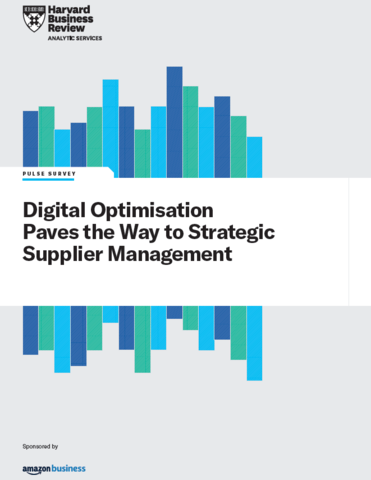Business must do more to protect human rights

Namit Agarwal at the World Benchmarking Alliance argues that companies are putting millions at risk of human rights abuses but transformative change is possible
Recent protests over unfair pay from Bangladeshi garment workers and COP28 discussions around just transition have once again brought human rights into the spotlight. These recent stories highlight the increasing public awareness of corporate links to human rights abuses, just as we commemorate the 75th anniversary of one of the world’s most groundbreaking pledges: the Universal Declaration of Human Rights.
On Sunday 10th of December, it’s the United Nations’ Human Rights Day, marking three-quarters of a century since the world’s governments fostered international peace in the wake of the Second World War by setting out universal human rights.
Since 1948, there has been progress in protecting and respecting human rights around the world, but as these stories attest, there is still much work to do – especially by multinational businesses with sprawling global supply chains.
At the World Benchmarking Alliance (WBA), we measure the progress of different corporate sectors against the United Nations’ Sustainable Development Goals – a blueprint for achieving a better, fairer and greener world by 2030.
The key finding of our new Corporate Human Rights Benchmark is that most businesses are still behind when it comes to protecting their workers, and the communities in which they operate, from rights abuses – like child labour, forced labour, unfair pay, unsafe conditions and exposure to toxic materials.
Focused on both the fashion and raw materials extractive industries, the latest assessment ranks 100 of the world’s largest companies – including Amazon, BP, Exxon Mobil, Gap, H&M, Nike, Rio Tinto, Saudi Aramco, SHEIN, Shell and TotalEnergies. It finds that major gaps remain in company operations and supply chain processes, putting millions of people around the world at risk.
With this benchmark, we wanted to go beyond checking to see if companies have made the appropriate commitments – by looking at their performance on-the-ground.
Alarmingly, we discovered that most corporate commitments aren’t even based on direct engagement with the workers and people most affected. While 61% of companies have a human rights due diligence process, only 27% engage with rightsholders as part of it. This raises fundamental concerns about their effectiveness to combat real world risks.
This theme of a discrepancy between commitments and actions was apparent elsewhere. In the apparel sector, most companies set high standards for their suppliers, like garment factories in South Asia, regarding human rights and gender equality. However, only 27% of clothing brands and retailers enable their suppliers to meet these expectations by using responsible purchasing practices.
Practices like making last-minute changes to orders, setting short lead times, making late payments and price pressuring remain all too common. They increase the strain on suppliers, which, in turn, can lead to excessive staff overtime, increased use of temporary labour and unauthorised subcontracting. They make it harder for suppliers to provide a safe workplace and timely, fair wages for their workers.
If fashion companies genuinely want their suppliers to meet their human rights commitments, they need to stop hindering their ability to do so.
In the extractive industries – like mining and the oil and gas sector – concerning issues persist when it comes to Indigenous people’s rights. Less than a quarter of these companies (24%) publicly commit to respect Indigenous land ownership or use. Only 9% describe how they identify who are the legitimate rightsholders when acquiring a piece of land or extracting its natural resources.
As Indigenous people are vulnerable to becoming victims of land dispossession, forced removal or relocation, these grave omissions must be urgently addressed.
However, our research also shows that transformative change is possible. Twelve companies have improved their score on fundamental human rights indicators by more than five times the average – each improving its sector ranking by over ten places.
This remarkable progress not only provides hope that current corporate failings on human rights can be turned around, but also offers insights as to how.
One of the main things these companies have done is assign senior-level responsibilities to human rights. They have also prioritised staff human rights training and implemented a grievance raising mechanism for those working in their supply chains or living in communities near their operations.
All these measures show the importance of translating policy commitments into action. For example, by clarifying how different departments need to implement human rights into their day-to-day practices, the company will then have more visibility around the action for different parts of the operation and how they can hold each department accountable.
Similarly, human rights training and grievance raising mechanism are essential for making sure that employees who experience or witness violations can take the right action, and that their outcomes are in line with the company’s commitments to human rights.
Many companies have commitments and policies in place, but these aren’t enough unless they walk the talk. This commemorative Human Rights Day must be the moment companies commit to much faster, real-world progress on human rights throughout their value chains.
Respecting people’s rights is fundamental to a sustainable and prosperous society, and we cannot get there unless businesses play their essential part.
Namit Agarwal is the World Benchmarking Alliance’s Social Transformation Lead
Main image courtesy of iStockPhoto.com

Business Reporter Team
Most Viewed
23-29 Hendon Lane, London, N3 1RT
23-29 Hendon Lane, London, N3 1RT
020 8349 4363
© 2024, Lyonsdown Limited. Business Reporter® is a registered trademark of Lyonsdown Ltd. VAT registration number: 830519543





